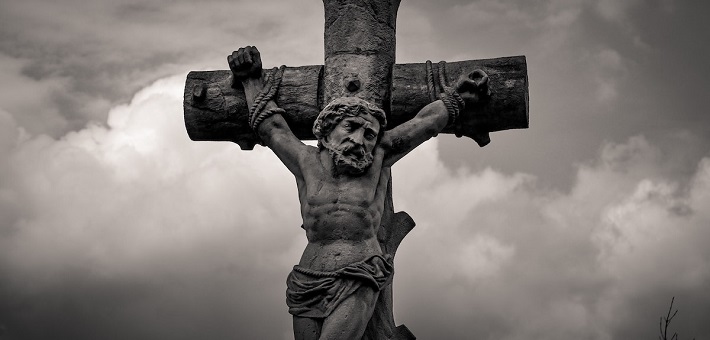Commentary on Job 38:1-7 [34-41]
I’ve been a public school teacher since August 2008. Part of the requirement for being a public school teacher is a willingness to be observed by my principal and other district administrators. In that context, one of the things I am evaluated on is my classroom management style and skills. And when my principal observes and evaluates me, I am observed and evaluated by my supervisor.
That’s quite a different scenario from fielding a student’s exasperated complaint that I don’t know how to run my classroom. I respond to such a complaint differently than to my principal’s formal evaluation.
Keep that in mind as we look at this week’s lectionary passage from Job 38, which marks the first time since chapter 2 that Yahweh makes a direct appearance in the book.
In chapters 1-2, Yahweh makes a bet with the heavenly District Attorney (the Satan, hassatan) regarding Job’s faithful loyalty. The Satan proposed that the only reason Job was faithful and loyal to Yahweh was because Yahweh blessed him and protected him. Strip away those blessings and divine protection, and Job “will curse you to your face” (1:11; 2:5).
The Satan is, however, proved wrong. First Job’s blessings, and then Job’s health, are taken away from him, but “in all this Job did not sin” (1:22; 2:10).
But because Job is not aware of this bet, he wants an audience with Yahweh. He is convinced of his own sinlessness (indeed, the omniscient narrator affirms as much in Job 1:1), confident that he doesn’t deserve to get what he got.
So when God appears in a whirlwind (see also Psalm 50:3; Isaiah 29:6; 66:15; Nahum 1:3; Zechariah 9:14)1 in Job 38, we expect that the legal pleading with God that Job so desperately wants will ensue, and that Job and God will litigate God’s management of the universe in general, and Job’s horrific and unjustified loss in particular.
But as we read Job 38(-41), we are disappointed. Nowhere in these chapters does God take up the first iota of Job’s case. Instead, God talks about the very order of creation itself and what Job doesn’t know about it, as if to say (like a teacher to a complaining student) that Job has no standing to criticize God’s management of the universe.
Moreover, the tone of the Yahweh speeches is disturbing. David J. A. Clines rightly observes that “Yahweh’s address has seemed to many to be supercilious, patronizing, or bullying. ‘Tell me, if you have insight’ (38:4), ‘Surely you know!’ (38:5), ‘You know, for you were born in ancient times and the number of your days is great’ (38:21) are all sentences that can hardly be kindly spoken.”2
Still, in some sense, Yahweh acknowledges Job’s questions. The language in verse 3, “Gird up your loins like a man” (see also 40:7; Jeremiah 1:17) admits at least that much. The idiom “gird up your loins” in this context refers not to preparing for battle (as it does elsewhere in the Old Testament), but to “preparing for a task,”3 which in this case is the questioning that Yahweh is about to throw at Job.
These questions will cover two basic items: Yahweh’s design (Hebrew esa; 38:2; see also 42:3) and just governance (Hebrew mishpat; 40:8) of the world,4 and they are all rhetorical.5 Each one expects some negative answer from Job:
“Where were you when I laid the foundation of the earth?” (38:4).
“Where is the way to the dwelling of light, and where is the place of darkness?” (38:19).
“What is the way to the place where the light is distributed, or where the east wind is scattered upon the earth?” (38:24).
Job’s unstated answer? “I wasn’t there and I have no idea.”
“Who determined its [the earth’s] measurements… Or who stretched the line upon it… Or who shut in the sea with doors when it burst out from the womb? (38:5, 8).
“Who has cut a channel for the torrents of rain, and a way for the thunderbolt” (38:25).
Job’s unstated answer? “Not me, that’s for sure.”
And through it all, Yahweh speaks not one word about Job’s lament, not one word about Job’s request for a statement of his sins, not one word about whether Job is right (he has not sinned) or whether his friends are (Job has sinned, and all he need do is admit, confess, and repent).
So what do we do with that?
I want to suggest a few lines of thought that could prove helpful.
First, within the more extensive section (chapters 38-41), there is almost no mention of humankind. As such, it provides a counterpoint to the first creation story, when humankind is the pinnacle of God’s creation, or to Psalm 8, which proclaims that God has made humankind “a little lower than God, and crowned them with glory and honor” (Psalm 8:4-8). There is no sense in our passage that humankind has any kind of dominion over “the works of [God’s] hands” (Psalm 8:6).
Instead, the creation is discussed as its own valued entity where the sea has its God-given boundaries (38:8-11), where rain falls on the desert sands (38:25-27), and where animals hunt for prey in order to feed their young (38:39-41). Scripture does not speak with one voice about a human-centric view of creation where we are its lords6 and it is our servant.
Second, the mention of boundaries in verse 10 (Hebrew huqq; see also Psalm 148:6 and Proverbs 8:29) suggests that within creation there is room for freedom. The God speeches break down the false dichotomy between unbounded chaos, on the one hand, and absolute mechanistic retribution, on the other. There is a middle way, a way which admits of freedom within limits, a freedom within boundaries that is part of the divine order of creation. The Wesley Study Bible puts it like this: “God does not order the universe in a simplistic mechanical way: in short, the entire basis of the debate between Job and his friends has been conducted on false premises.”
Finally, the questions from Yahweh are more than simply “pulling rank” on God’s part. They underscore just how little Job understands how the universe works (see also Isaiah 40:28 [God’s “understanding is unsearchable”]; 55:8-9 [God’s ways and thoughts are “higher” than ours]7). This means that Job cannot possibly have the knowledge to stand in judgment over God’s handling of his situation.
That’s a lesson that the church needs to hear often, especially when its members seek to lay blame on marginalized groups (LGBT, pro-choice, etc) for otherwise inexplicable natural catastrophes.8 If Job and his friends didn’t know and understand enough about creation to pronounce “righteous judgment” on Job, neither do any of us know and understand enough about creation to pronounce “righteous judgment” on anyone, despite what our theology leads us to believe.
Period.
Notes
- “The storm wind or whirlwind is a consistent motif in theophany portrayals” (TDOT 10:295).
- David J. A. Clines, “Job 38-42” (WBC 18B; Grand Rapids: Zondervan, 2011) 3:1088. Translations are Clines’ own.
- NIDOTTE 1:344; see also TDOT 4:442 (“At home and at rest, the belt around the long outer garment was taken off; putting it on and tucking up the garment made its wearer ready for activity, and was done before setting out on a journey or going to work”).
- Norman C. Habel, Job (OTL; Philadelphia: Westminster Press, 1985), 529.
- Habel, Job, 530-32, provides a helpful table that correlates elements of the Yahweh speeches with prior elements from Job’s conversations.
- As suggested by the politically loaded expression, “dominion” (Hebrew radah be) in Genesis 1:26. Psalm 8:6 uses a different but similarly political idiom (tamshilehu be, ‘you have installed him as lord over’).
- For Isaiah 40:28, see TDOT 5:150; on Isaiah 55:8-9, see Claus Westermann, Isaiah 40-66 (OTL; Philadelphia: Westminster Press, 1969), pp 288-89.
- A good historical survey of these types of responses can be found at https://www.huffpost.com/entry/god-and-natural-disasters-its-the-gays-fault_b_2068817 (accessed 31 March 2020). This article obviously predates the COVID-19 pandemic.



October 17, 2021